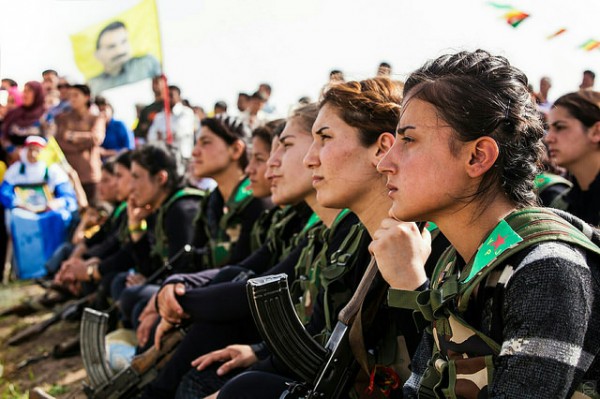
From last year’s attacks in Paris to recent bombings in Ankara, Brussels, and Lahore, transnational terrorism is at the forefront of public concern. The media often gravitates toward focusing on who the perpetrators are and what drove them to commit these heinous acts. There is a wealth of research on the individual and psychological factors that may be at play, but sociological studies highlight the strong influence of social context and institutions in turning people toward terror, challenging easy explanations that focus on individual ideology alone.
Quantitative analysis shows how radical Islamic groups are motivated by many of the same social and political factors as older radical groups. Social and political change, especially international development, urbanization, and western military dependency, is associated with more frequent attacks. Higher foreign investment associates with a lower frequency of attacks, however, and research on terror in Israel shows this kind of conciliatory action may do more to limit terror than repressive strategies alone.
- Laura Dugan and Erica Chenoweth. 2012. “Moving Beyond Deterrence: The Effectiveness of Raising the Expected Utility of Abstaining from Terrorism in Israel,” American Sociological Review 77(4):597-624.
- Kristopher K. Robison, Edward M. Crenshaw and J. Craig Jenkins. 2006. “Ideologies of Violence: The Social Origins of Islamist and Leftist Transnational Terrorism,” Social Forces 84(4):2009-2026.
Research also shows that individual attackers are actually fairly “normal.” They are not more likely to be poor or poorly educated, and, often, they are not psychologically pathological. Instead, scholars look to the social arrangements of the institutions and networks that recruit and empower individuals. These terror groups are rarely centralized, hierarchical organizations that train bombers from on high; attacks stem from struggles for power among fractured organizations, local splinter groups, and state forces. As these conflicts escalate, local groups mobilize network relationships to recruit attackers and build the autonomy to develop their own motivational strategies to spur attacks. These local relationships and networks matter much more than individuals’ beliefs alone.
- Scott Atran. 2003. “Genesis of suicide terrorism,” Science (299):1534-1539.
- Ami Pedahzur and Arie Perliger. 2006. “The Changing Nature of Suicide Attacks—A Social Network Perspective,” Social Forces 84(4):1983-2004.
- Eitan Y. Alimi. 2011. “Relational dynamics in factional adoption of terrorist tactics: a comparative perspective,” Theory and Society 40(1):95-118.

Comments 1
Herman Snerd — April 1, 2016
People tend to speak from their knowledge base. If one's expertise is in the social sciences, and Islamic doctrine is a mystery, one tends to ignore that as motivation. The Prophet Muhammad invented and practiced Jihad several score times the last 9 years of his life. Striving in Allah's cause is an obligation of every Muslim everywhere. It needn't be by violence. It can be by donation, speech, or writing. Muhammad is the forever model for how every Muslim is to live. Since he was a Jihadi, jihad is the most highly honored striving. There are many cites to The Sira (his biography), the aHadith (eye-witness accounts of what he did and said) and to the Quran. If necessary, I will cite a few. But to ignore all that and way "it's sociological factors [because that's what we Westerners find impressive]" is to overlook a key motivator.